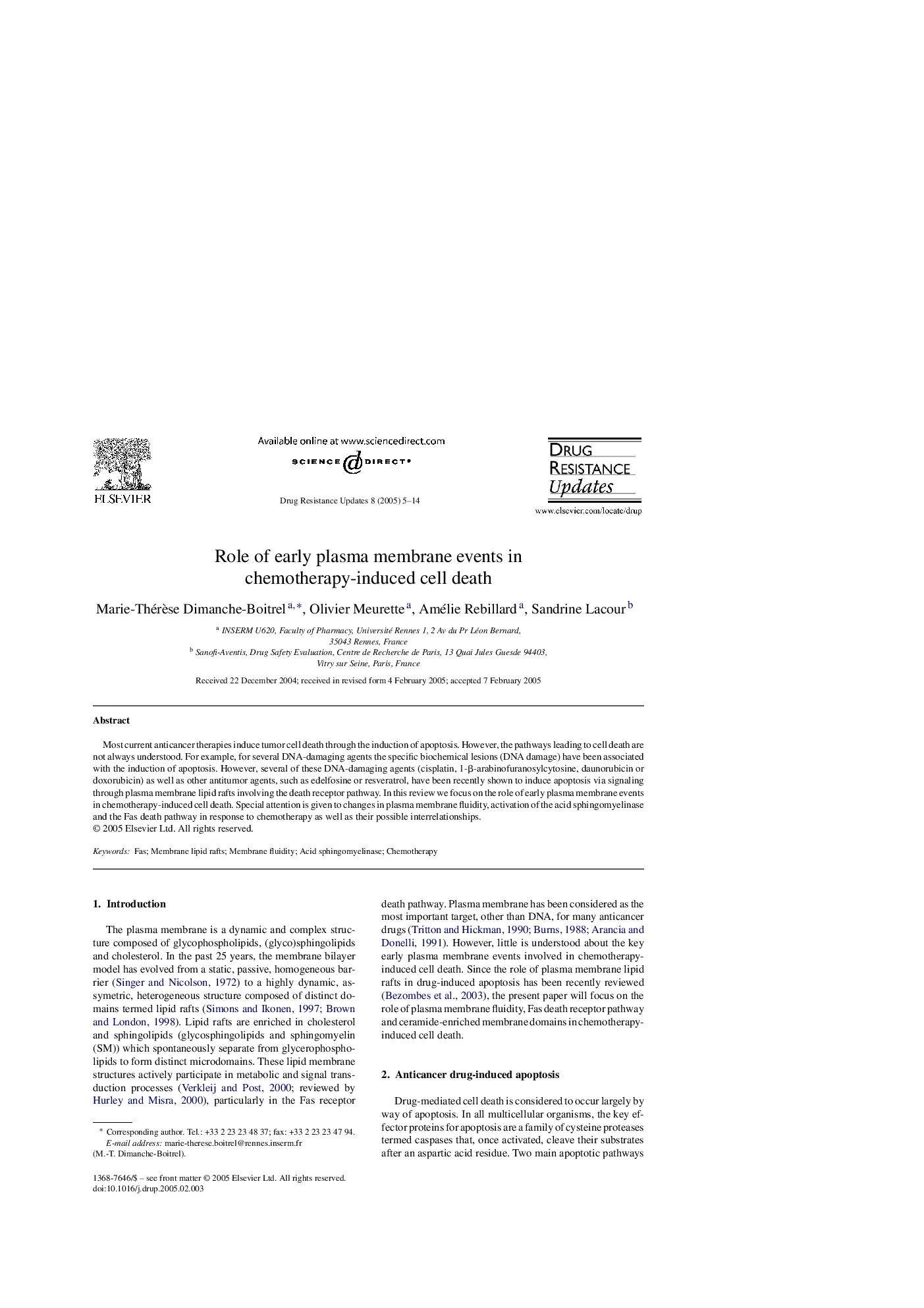| Article ID | Journal | Published Year | Pages | File Type |
|---|---|---|---|---|
| 9905649 | Drug Resistance Updates | 2005 | 10 Pages |
Abstract
Most current anticancer therapies induce tumor cell death through the induction of apoptosis. However, the pathways leading to cell death are not always understood. For example, for several DNA-damaging agents the specific biochemical lesions (DNA damage) have been associated with the induction of apoptosis. However, several of these DNA-damaging agents (cisplatin, 1-β-arabinofuranosylcytosine, daunorubicin or doxorubicin) as well as other antitumor agents, such as edelfosine or resveratrol, have been recently shown to induce apoptosis via signaling through plasma membrane lipid rafts involving the death receptor pathway. In this review we focus on the role of early plasma membrane events in chemotherapy-induced cell death. Special attention is given to changes in plasma membrane fluidity, activation of the acid sphingomyelinase and the Fas death pathway in response to chemotherapy as well as their possible interrelationships.
Related Topics
Life Sciences
Biochemistry, Genetics and Molecular Biology
Cancer Research
Authors
Marie-Thérèse Dimanche-Boitrel, Olivier Meurette, Amélie Rebillard, Sandrine Lacour,
